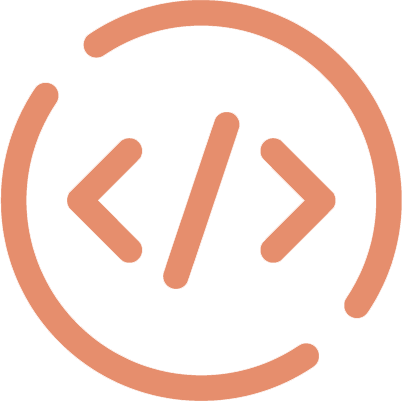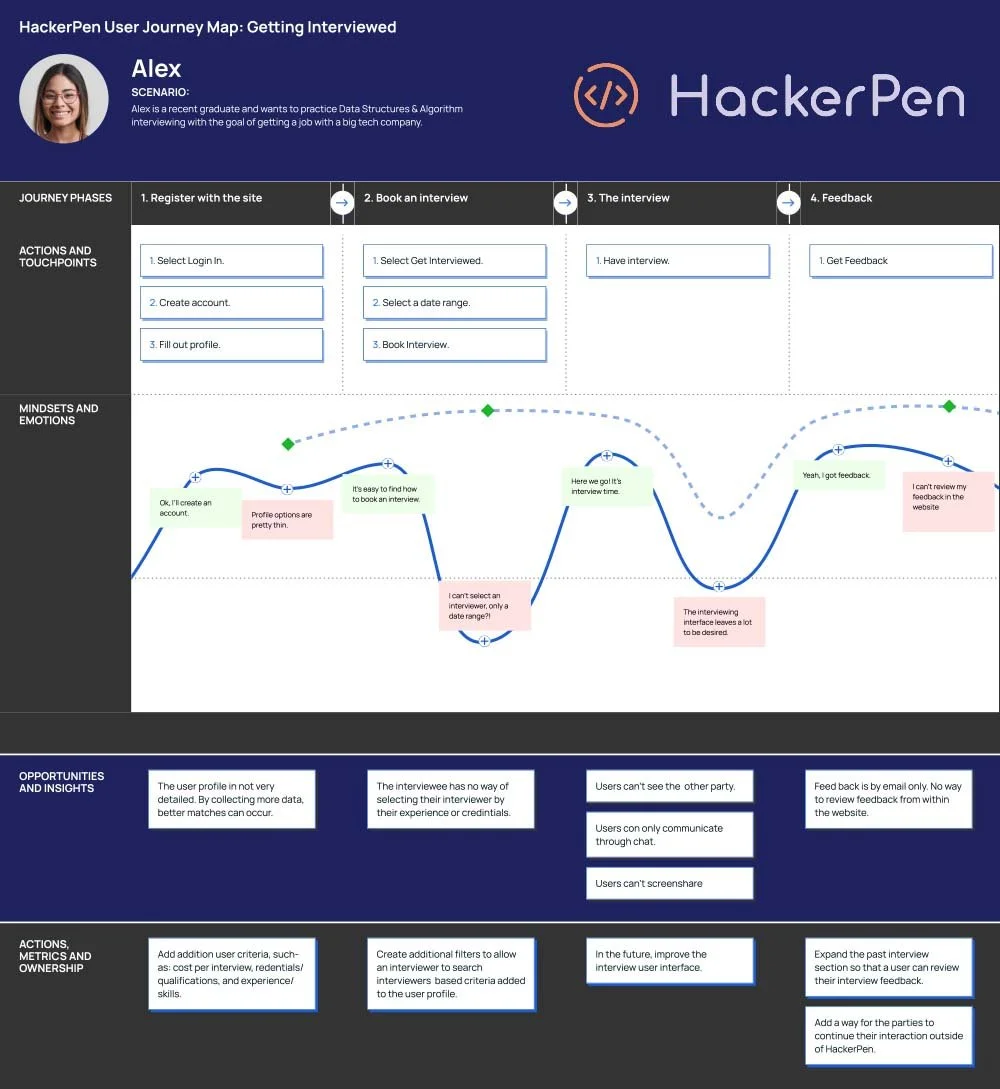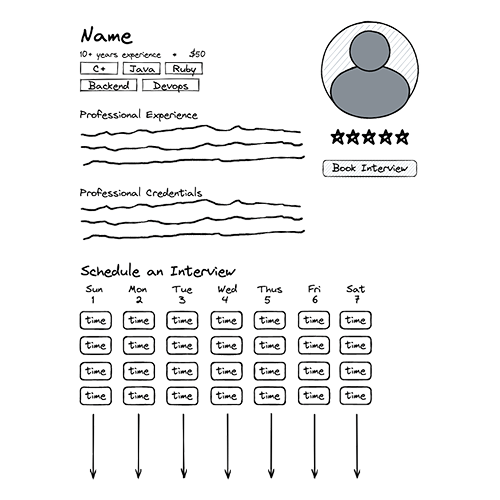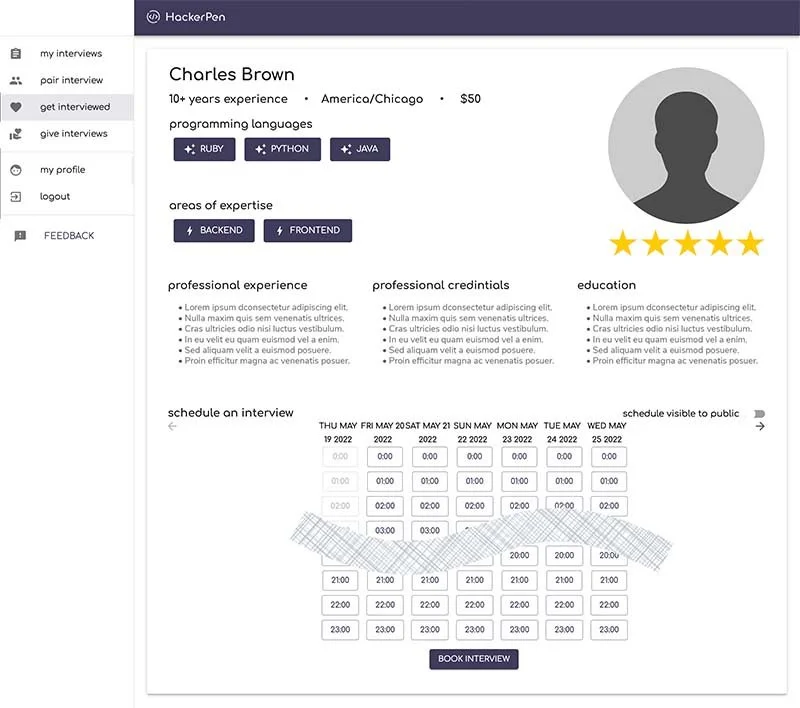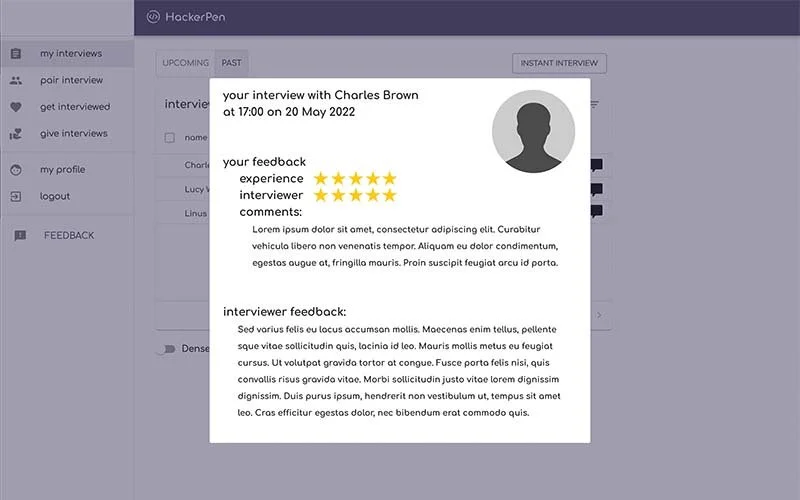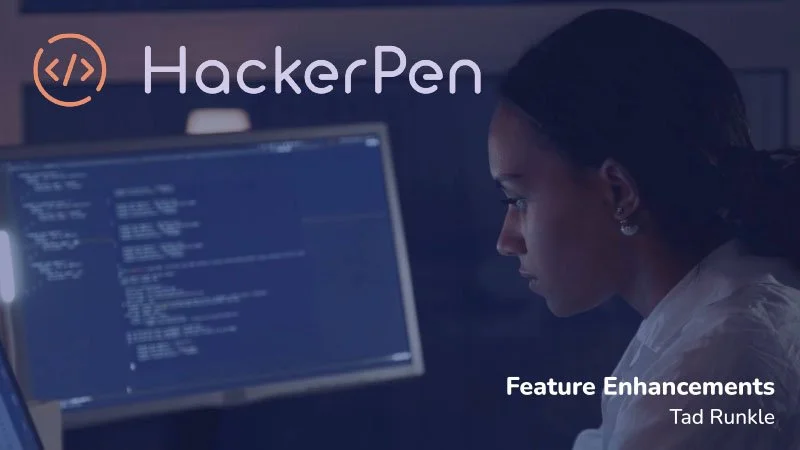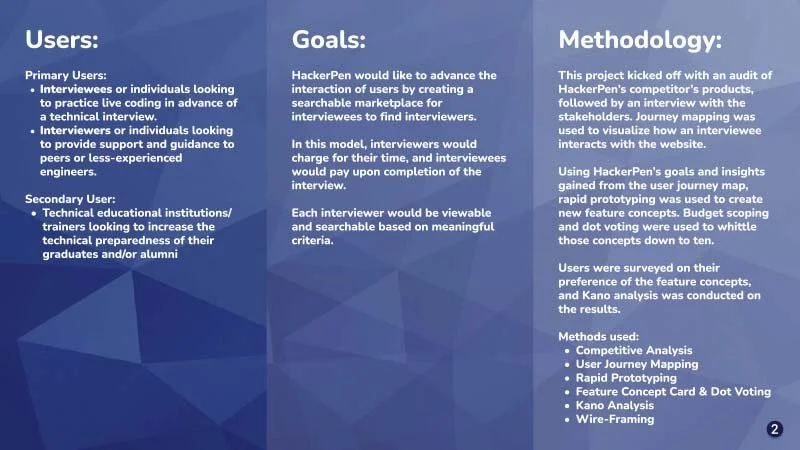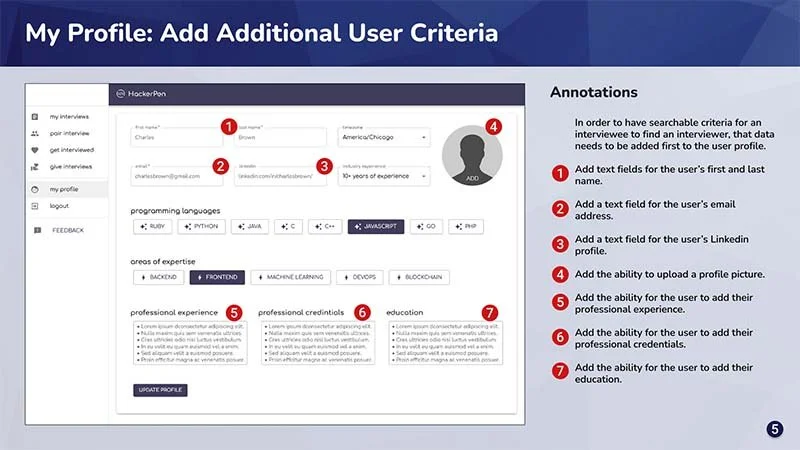
HackerPen
HackerPen is a web-based platform designed to support software engineers in preparing for technical interviews. Founded by two engineers, the platform aims to help job seekers enhance their readiness for securing positions in the tech industry.
Objective
HackerPen sought to improve user engagement on its platform, HackerPen.io, by introducing a searchable marketplace that connects interviewees with compatible interviewers. To address this goal, we conducted a competitive audit, interviewed key stakeholders, and mapped the user journey to identify pain points and opportunities for enhancement.
Based on HackerPen’s objectives and insights from the user journey mapping, we developed feature concepts through rapid prototyping. Budget scoping and dot voting narrowed these concepts down to ten, which were further refined using Kano analysis. High-fidelity wireframes incorporating the new and revised features were then created.
Tools:
Excalidraw
Figma
Photoshop
Google Workspace
Zoom
Users:
Tech Interviewers
Interviewees
Process & Methodology:
Competitive Analysis
Journey Mapping
Rapid Prototyping
Feature Concept Card
Dot Voting
Kano Analysis
Wireframing
Deliverables:
Competitive Analysis Audit
Low-Fidelity Prototypes
Kano Analysis
High-Fidelity Wireframes
Competitive Analysis and Stakeholders Interview
A competitive audit was conducted to evaluate features and user flows offered by comparable platforms. This analysis provided valuable insights into marketplace expectations and best practices.
Following the audit, a stakeholder interview was conducted to understand the current state of HackerPen’s platform and its vision for future feature enhancements. This collaboration clarified HackerPen’s priorities and set the foundation for the project.
User Journey Mapping
To identify key pain points, a user journey map was created based on the persona “Alex,” a recent graduate aiming to secure a role at a major tech company by practicing data structures and algorithm interviews.
The journey map (pdf) highlighted several frustrations with the existing platform, including:
Insufficient profile criteria for selecting compatible interviewers
Difficulty navigating the process of selecting an interviewer
Lack of historical feedback on interviewers
By addressing these pain points, HackerPen can significantly enhance user satisfaction and improve the overall platform experience.
Rapid Prototyping, Feature Concept Cards and Dot Voting
Using Excalidraw, rapid prototypes were developed to address user pain points identified in the journey map. These prototypes were organized into feature concept cards, each scoped for budget feasibility. Dot voting was then used to prioritize the top ten feature concepts for further analysis.
Kano Analysis
A user survey was created to evaluate the final ten feature concepts, and the results were analyzed using Kano methodology. This analysis revealed that users prioritized expanding profile criteria to allow for better compatibility between interviewees and interviewers. Additionally, users valued features that enhanced feedback mechanisms and streamlined the user journey.
Wireframing
Based on insights from the competitive analysis, stakeholder interviews, journey mapping, and Kano analysis, five key features were identified for improvement:
Expanded User Profiles: Enhanced profile fields to improve interviewer-interviewee matching.
Improved Filters and Search Results: Advanced filtering options for finding interviewers based on specific criteria.
Detailed Interviewer Bios: Comprehensive interviewer profiles showcasing credentials, skills, and feedback history.
Expanded Interview Management: Enhanced tools for users to track and manage their interviews.
Online Feedback System: A robust system for collecting and displaying post-interview feedback.
These features represent the complete user journey, from creating a profile to reviewing interview feedback.
Feature Presentation with Annotations
A presentation for the client detailed the research methods, findings, and high-fidelity wireframes for the recommended feature enhancements. The presentation also outlined potential future improvements to further refine the platform.
In Conclusion
HackerPen is focused on expanding its user base, increasing platform engagement, and exploring product-market fit in other industries.
The proposed enhancements not only improve the interviewee experience but also add value for interviewers. These changes align with HackerPen’s goal of advancing the interaction between interviewees and interviewers, helping the platform achieve a closer fit with market expectations and paving the way for future growth.

